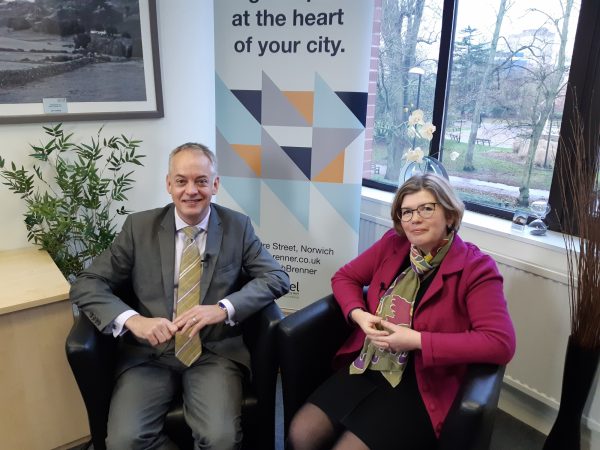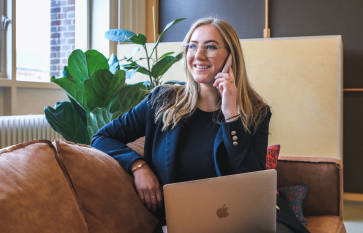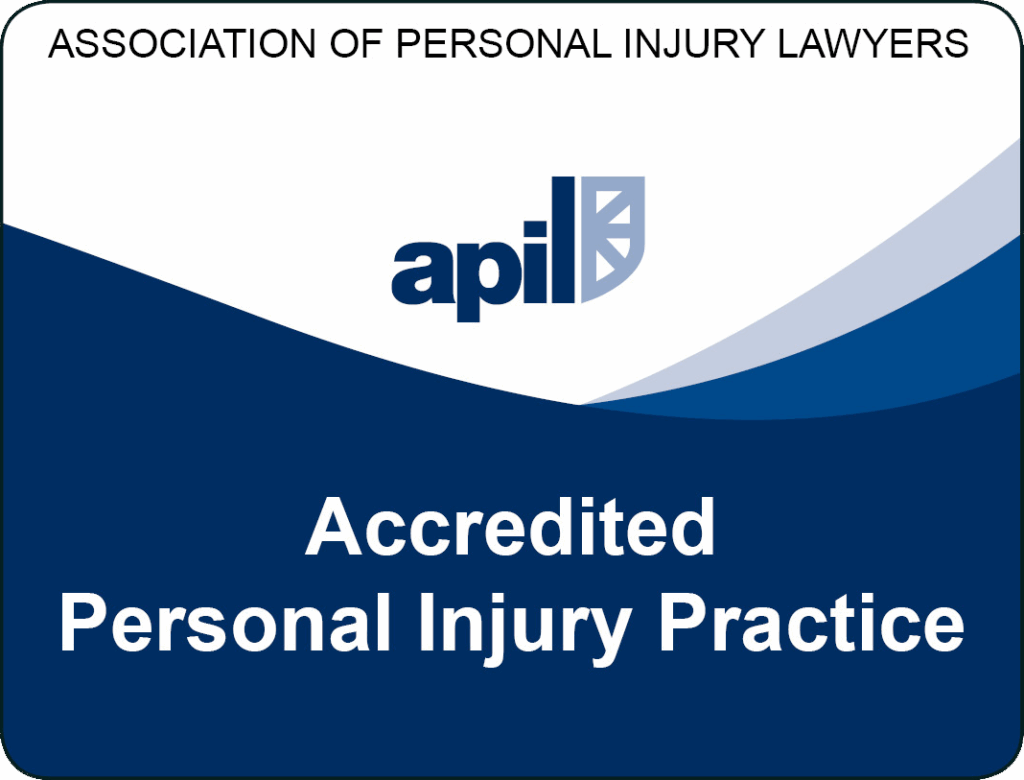Mediation in the Workplace Interview Transcript:
Mark Fitch: Hello and welcome to the offices of Hatch Brenner Solicitors on Theatre Street in Norwich. I’m Mark Fitch (‘MF’), Dispute Resolution and Mediation Partner here and I am today wanting to speak to you about mediation – and specifically mediation in the workplace.
It’s something I’ve done from time to time in addition to the more usual civil or, as it’s known, commercial mediation but I am here to re-engage in the process in a more meaningful and regular manner. I’m going to do that in collaboration with my guest today. Now, she’s got her own strategy and coaching practice, Blend Associates Limited, and boasts over 30 years’ experience in the field. She holds a Master’s Certificate in Executive Coaching and Mentoring, is a certified MBTI practitioner and, most relevantly, holds a CEDR certificate in employment and workplace mediation. I’m delighted to welcome Amanda Reynolds (‘AR’).
AR: Nice to be here.
MF: So, mediation. Now I would describe that as an independent third-party being asked by those in conflict to try and help resolve that dispute. But what about specifically mediation in the workplace?
AR: Well, mediation in the workplace follows the same format: you have an independent, impartial mediator. You are looking at a dispute that the parties need to resolve; but it’s workplace-based, so it’s issues that are going on in that workplace between an employer and an employee or sometimes between individual employees in the workplace.
MF: And so why would somebody want to mediate?
AR: Because essentially it’s an unresolved conflict; a dispute and it gets in the way of the employee continuing to work and work effectively. It gets in the way of the manager and the organisation, and it’s unresolved so we’d want to mediate because we want to get beyond the dispute.
MF: And so what benefits might the individual and the organisation get from mediation in the workplace?
AR: Well, for the individual the benefits are they get their dispute heard and we, through a day of mediation, seek to get to an agreement that they’re happy with. For the employer, the business, again, the dispute gets under the surface of, and again, something they can agree to a conclusion of. I think it’s really useful in situations where an employee is off long term sick, maybe with stress ,maybe that’s generated from the workplace, and the employer wants to get them back to work, the employee wants to get back to work and beyond this there could be issues in a team; there could be allegations of bullying – harassment, maybe even discrimination and the employer wants to understand what’s going on here and they definitely want to resolve this – if there is any substance to these issues both for the organisation and the employee. There might be performance issues where an employee is not performing effectively, targets are being missed in the organisation and they need to get back to meeting the targets and delivering the work of the business.
AR: I suppose the other thing I would say, Mark, is that people may have a long-term health condition and that might make it difficult for them to undertake their work or meet their targets. It might result in them having had periods of sickness and the employer may not have had the chance to hear from the employee how that’s impacting them and these things can escalate very quickly and end up becoming grievances or disciplinary procedures or even move beyond the organisation to an employment tribunal. And all of those processes are formal and expensive and lengthy, and if we can get into a situation early as external mediators and can support a successful mediation you avoid all of that time, distress, adverse publicity, cost; particularly useful for small businesses where cost is a big factor.
MF: So a usual position might be employee off sick and has made some complaint about their manager. The manager on the other hand isn’t happy with the employees’ performance; we will be brought in to assist in that situation.
AR: Yes, absolutely.
MF: And if the employer agreed that we should be brought in … how would a mediation work?
AR: Well I think agreed is a really important word here because mediation is voluntary so both parties have to agree to mediate. It’s unlike a sort of disciplinary or a grievance process where one side might be pushing. This is about both sides volunteering and being willing to get in the room and to mediate. It won’t stop either party moving on to another legal or employment process but it’s a chance to resolve this without resorting to lawyers and legal processes and court fees, or resorting to disciplinary and ultimately dismissal could be the case; so it’s really important that both parties want to do this and want to come and mediate and are willing to give it a try.
MF: So what preparation would we want prior to the day’s mediation?
AR: So if we were brought in to mediate, Mark, I think we would want to meet with each party individually to get an understanding of what the broad themes of mediation are so we may be sent some background paperwork as well to read. But on the day then we would want to, in confidence, in separate rooms; get to know each party and their perspective on this – that part is really important because the individual party needs to feel that it’s confidential between the mediators and them and that they can walk us through this dispute; this conflict from their perspective.
MF: So, we’ve in effect got two levels of confidentiality. The whole process is confidential between us and the parties and then in the morning sessions once we’re with individual parties those actual sessions are confidential between us and that individual.
AR: Absolutely, and they only get shared with the other party with the explicit permission of the party who’s shared with us and that’s important.
MF: And so, if at the end of the morning sessions we’ve met both parties and we think that both parties genuinely want to proceed with the mediation process then after lunch we bring them together.
AR: Yes, we’d seek to bring them together; that might be an initial just one party listening to the other tell their story; their perspective on this and then we break again. It might be that parties are ready to make some offers so one party might say “well this is from my perspective and this is what I’m looking for”; but we work to conclude this in a day so the mediators need to sort of set the pace and keep it going; but we also need to be led by the parties and when they’re ready to come into that joint meeting and when they’re ready to share, or share and request.
MF: So I mean once the parties are having their lunch we’ll be busy preparing for that joint session and kind of deciding what issues we’re going to raise and the order in which we’re going to raise them.
AR: Absolutely, and that’s part of that the USP we can offer as co-mediators because we can take each other’s perspectives. It’s important for us as mediators to get each party comfortable and feeling safe enough to go through all of the issues that are going on for them not those that are written down or those that they’ve declared. And they might gel with you, Mark, better than they gel with me or vice-versa and that’s fine. One of us can lead that dialogue and the other one can observe and the lunchtime session is about sharing perspectives thinking about where we might start the afternoon because our aim is to help them make progress; help them get to an agreement that both parties are happy to sign up to and that we can all move beyond this. You know we move beyond conflict; we move beyond dispute and that’s a really positive outcome for everyone.
MF: I agree, and one thing I would think about would be that the start of that afternoon session can be quite stressful. You’ve got people who are able for the first time probably to say in front of their line manager “I’m not happy with you because…”, and frankly the idea of having a co-mediator to help in that particularly stressed environment I think would be a real help.
AR: In terms of feeling they’ve got a support team with them when they’re saying the things they feel they need to say but are difficult, absolutely. But also, Mark, we’re sitting in your nice Hatch Brenner offices here; you’re right next to a park – sometimes people just need to have the opportunity to just literally take a break, you know, and one of us can walk around the park with a party to just, you know, breathe a bit and calm down because it’s a difficult and emotive time for people and it can generate quite strong emotions so you know it’s just offering some extra resource really; of two people being there and two brains are better than one.
MF: So we’ve got through our joint meeting, we’ve raised the issues. We’re then going to try and find some ways of dealing with those issues.
AR: Yes absolutely. So we would then take parties back into their own room and try and understand what they’re looking for; trying to unpick what they want, what they might ask, how they might present that? I think you would say, Mark, that the flipchart is a mediators’ best friend here?
MF: Every time!
AR: We might brainstorm on the flip chart with people and then get to a point with them in that party of “right, what are you ready to go and present to the other party?”, and vice versa so we shuffle between the rooms until we’re ready to bring them together.
MF: So in that final joint meeting what sort of things are we looking at to try and resolve the issue? What might a mediation in the workplace agreement look like?
AR: Well, a mediation agreement is morally binding on the individuals so it works really well stating “how I’m going to behave; how I might work; how I might present things I’m finding difficult to my boss in future’; you know, how the boss might allocate work; all of those things can be written down.
MF: So sometimes, perhaps, really quite minutiae for how people react with each other.
AR: Yes, how people behave; how they greet each other; it can be something that people just need time to think about things so it could be “don’t allocate me work in the team meeting please; can you, if you’ve got work to allocate me, can you just warn me that’s going to come up and I can have a think about that”. It might be somebody’s got a long-term health condition and the employer has some reasonable adjustments to make. Employers are quite often good at doing that in a slightly formulaic way almost having a checklist or “this person’s got rheumatoid arthritis and it flares up and sometimes they can’t be in the office all day … oh we’ll offer them this; will offer them that”, and start directing them to have a work at home day whereas the employee might say “I know my condition can we agree that we’ll just check in and agree how many hours I’m going to be in the office that day or whether I’m going to be working from home because I might not need to work from home; I might be fine that day or I might need to go and take a rest … take a longer lunch break”, those sorts of things can be written down which employers can often get a little bit carried away with it being very process-y and not personal to the person.
MF: So, adding for the employers benefit and the employees benefit an extra level of flexibility in how they’ll proceed.
AR: Yes, absolutely. The flipside of this … the employee may well be off long-term sick and the employer wants to get them back to work so there may be something written down about when they’re going to return to work … are they going to do graduated return to work hours; three days a week initially up to four, for example? Might the employee be requesting to go part-time or compressed hours? How is that going to work? Write that down: When are we going to review this so we don’t get into another dispute here? How are we going to review it? Who’s going to be involved in that process? And that helps people move on to another place; move back to work.
MF: And so that’s a real benefit for the employee. But for the employers’ perspective there might be a grievance and as part of the mediated agreement we can have that grievance settled.
AR: Absolutely so you can avoid further processes and conclude the dispute in the one process in a mediated day and everyone can move forward; the employer and the employee.
MF: And you say “in the day”: so we will be aiming to resolve the issues on that one day?
AR: We are aiming as mediators to resolve the issues on the day because this is likely to be something that’s dragged on and other processes haven’t worked so you want to get beyond the dispute in a day. There’s only a couple of reasons why that wouldn’t work if the two parties can’t agree and this is a mediation that’s not successful and a party then says: “no, I am going to go forward with X process”, because they’ve both got to agree to the mediation. It’s voluntary but that doesn’t happen very often. Most parties when they get in the room they’ve agreed to mediate; they want to conclude this. The only other thing might be if there’s any legal things to tie up so the mediation’s concluded in the day but all the paperwork isn’t.
MF: But Amanda, if the mediation isn’t successful on the day; the process is what us lawyers would call “without prejudice”, which means that anything that has been said within the mediation process can’t be said again.
AR: Absolutely so it’s completely confidential, so whether the mediation is a success or not it’s confidential to the parties so they move beyond that. We hope they move beyond it to beyond the dispute and the business gets back to functioning and the employee or employees get back to functioning but if there’s another process that an organisation or an employee wants to go through; employment tribunal, for example, if the mediation has failed, there’s no prejudice – they take their case straight on.
MF: So there’s no pressure that we are imparting on the parties to settle?
AR: No.
MF: What we really want to do is get to a position where the employees or the employer and the employee have a choice; either they can take on board the proposed settlement that they themselves have reached, or if that’s not good enough for the two of them or for either of them, then they can proceed with their more litigious processes.
AR: Absolutely, Mark, if we as mediators and other people who are trained and experienced mediators could solve every conflict by forcing ourselves into a situation, we’d be both very successful in the world and very wealthy I suspect. So it’s about their choice; they have to choose to come and mediate and they have to choose the agreement that this is resolved and, in my experience, that’s really positive for people though; because most people want to get beyond a dispute. A dispute itself just drags you down and generates in itself a huge amount of distress and stress and distraction so everybody wants to get beyond it.
MF: So at the end of the day we’ve reached our agreement; we’ve written it down, it’s morally binding only. Why do we think that employees are going to stick to that?
AR: I think because they’ve come through the process and they’ve agreed to it and the agreement is something they’ve co-produced with us so the agreement is something that each party feels they own and that’s also why the employer will sign up to it as well because sometimes you’ll get people saying: “oh, they’ll just say that here and then they’ll go back to treating me the way they did before”. No, this is morally binding and it is something that both parties have co-produced with us as mediators and signed up to.
MF: I feel very privileged to have met you and I’m really looking forward to how we can mediate together. What do you think the benefits of us co-mediating might be?
AR: Well, I think two minds are better than one, always. I think for a mediation to be successful each party needs to feel the mediator is working with them on their side and some people gel with different personalities better; so, you know, we’re a double team here and it might be that with one party they can open up and build a rapport with you more than me or vice versa; but it also means when we’re working together, one is leading the dialogue with the parties or in the joint meeting, the other is observing. We’ve got the richness of the dynamics of what’s happening in the room to get an understanding of whether we’re making progress; whether individuals are really on board with this; what else we might need to explore with them with the individual parties in the room.
MF: Yes, I’m sure that there are statistics that say that communication is not just verbal; that a lot more is the body language.
AR: Yeah, 60 to 70 percent of the communication is non-verbal; about 15 percent is the way one says it; and about 15 percent is the words we use, so actually that’s really important. I know as an executive coach that actually getting an understanding of what’s really going on with somebody – the words are a start, and what’s really powerful with mediation is we can build a rapport with a party and find out almost like what’s under the tip of the iceberg, you know, what are the issues that are driving them here; that have got them to this dispute and that is often not what are the declared issues.
MF: Well, Amanda, thank you ever so much for coming to see me today. I really look forward to working with you in the coming months. There we have it; mediation in the workplace. If you think that we can assist, please get in contact.
AR: Thank you.
If you would like more information on Mediation, and specifically Mediation in the Workplace, contact Norwich CMC Accredited Mediator Mark Fitch at [email protected]
You can also watch the full interview on the Hatch Brenner Law You Tube channel here: Mediation in the Workplace: An interview with Mark Fitch and Amanda Reynolds

Mark Fitch and Amanda Reynolds discuss Mediation in the Workplace




